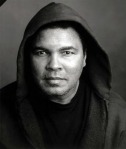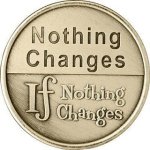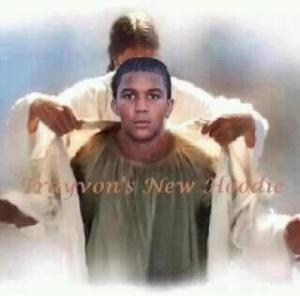
There are millions of NASCAR fans all over the world but do you know that the first NASCAR driver was Wendell Oliver Scott from Danville, Virginia. History has recorded Scott as the only black driver to win a race in what is now the Sprint Cup Series. He could be compared to Jackie Robinson in the sense that he broke the color barrier in Southern stock car racing. The memorable day occurred on May 23, 1952, at the Danville Fairgrounds Speedway.
Scott gained experience and winning some local races at various Virginia tracks before becoming the first African-American to obtain a NASCAR racing license. It is unclear when the license was issued in 1953, although NASCAR does not have the exact date. As you can imagine, Scott's career was repeatedly affected by racial prejudice and problems with top-level NASCAR officials. However, his determined struggle as an underdog won him thousands of white fans and many friends and admirers among his fellow racers.
It is said from the day was born he wanted to be his own boss. In Danville, two industries dominated the local economy: cotton mills and tobacco-processing plants. Scott vowed to avoid that sort of boss-dominated life. He once said, “The mill's looked too much like a prison. You go in and they lock a gate behind you and you can't get out until you've done your time”. From boyhood, Scott raced bicycles against white boys. In his neighborhood, he said, "I was the only black boy that had a bicycle." He became a daredevil on roller skates, speeding down Danville's steep hills on one skate.
He ran an auto-repair shop. As a sideline and for fun, he took up the dangerous, illegal pursuit of running moonshine whiskey. This trade gave quite a few early stock car racers their education in building fast cars and outrunning the police. The police caught Scott only once, in 1949. Sentenced to three years probation, he continued making his late-night whiskey runs. On weekends, he would go to the stock car races in Danville, sitting in the blacks-only section of the bleachers, and he would wish that he too could be racing on the speedway.
Scott was thirty years old at the approximate times when he was sitting in the bleachers of local speedways, watching white men race. Up to then, he had lived his whole life under the rigid rules of segregation. He could neither use a white bathroom or a white drinking fountain nor eat at a white restaurant. Nothing in his past had prepared him for the unusual, life-changing experience that was about to take place.
The Danville races were run by the Dixie Circuit, one of several regional racing organizations that competed with NASCAR during that era. Danville's events always made less money than the Dixie Circuit's races at other tracks. "We were a tobacco and textile town -- people didn't have the money to spend," said Aubrey Ferrell, one of the organizers. The officials decided they would try an unusual, and unprecedented, promotional gimmick: They would recruit a Negro driver to compete against the "good ol' boys."
To their credit, they wanted a fast black driver, not just a fall guy to look foolish. They asked the Danville police who was the best Negro driver in town. The police recommended the moonshine runner whom they had chased many times and caught only once. Scott brought one of his whiskey-running cars to the next race, and Southern stock car racing gained its first black driver.
Some spectators booed him, and his car broke down during the race. But Scott realized immediately that he wanted a career as a driver. The next day, however, brought the first of many episodes of discrimination that would plague his racing career. Scott repaired his car and towed it to a NASCAR-sanctioned race in Winston-Salem, North Carolina. But the NASCAR officials refused to let him compete. Black drivers were not allowed, they said. As he drove home, Scott recalled, "I had tears in my eyes."
A few days later he went to another NASCAR event in High Point, North Carolina. Again, Scott said, the officials "just flat told me I couldn't race. They told me I could let a white boy drive my car. I told 'em weren't no damn white boy going to drive my car." Scott decided to avoid NASCAR for the time being and race with the Dixie Circuit and at other non-NASCAR speedways. He won his first race at Lynchburg, Virginia, only twelve days into his racing career. It was just a short heat race in the amateur class, but for Scott, the victory was like a barb on a hook. He knew that he had found his calling.
He ran as many as five events a week, mostly at Virginia tracks. Some spectators would shout racial slurs, but many others began rooting for him. Some prejudiced drivers would wreck him deliberately. They "just hammered on Wendell," former chief NASCAR photographer T. Taylor Warren said. "They figured he wasn't going to retaliate." And they were right--Scott felt that because of the racial atmosphere, he could not risk becoming involved in the fist-fights and dirty-driving paybacks that frequently took place among the white drivers.
Many other drivers, however, came to respect Scott. They saw his skills as a mechanic and driver, and they liked his quiet, uncomplaining manner. They saw him as someone similar to themselves, another hard-working blue-collar guy swept up in the adrenalin rush of racing, not somebody trying to make a racial point. "He was a racer -- you could look at somebody and tell whether they were a racer or not," said driver Rodney Ligon, who was also a moonshine runner. "Didn't nobody send him [to the track] to represent his race -- he come down because he wanted to drive a damn racecar." Some white drivers became his close friends and also occasionally acted as his bodygards.
Some Southern newspapers began writing positive stories about Scott's performance. He began the 1953 season on the northern Virginia circuit, for example, by winning a feature race in Staunton. Then he tied the Waynesboro qualifying record. A week later he won the Waynesboro feature, after placing first in his heat race and setting a new qualifying record. The Waynesboro News Virginian reported that Scott had become "recognized as one of the most popular drivers to appear here." The Staunton News Leader said he "has been among the top drivers in every race here."
In 1961, he moved up to the NASCAR Grand National (now Sprint Cup) division. In the 1963 season, he finished 15th in points, and on December 1 of that year, driving a Chevy Bel Air and won a race on the one-mile dirt track at Speedway Park in Jacksonville, Florida becoming the first and to date only top level NASCAR event won by an African-American. Scott was not announced as the winner of the race at the time, presumably due to the racist culture of the time.
Ironically, the second-place driver, was initially declared the winner, but race officials discovered two hours later that Scott had not only won, but was two laps in front of the rest of the field. NASCAR awarded Scott the win two years later, but his family never actually received the trophy he had earned till 2010--37 years after the race, and 20 years after Scott had died.
He continued to be a competitive driver despite his low-budget operation through the rest of the 1960s. In 1964, Scott finished 12th in points despite missing several races. Over the next five years, Scott consistently finished in the top ten in the point standings. He finished 11th in points in 1965, was a career-high 6th in 1966, 10th in 1967, and finished 9th in both 1968 and 1969. His top year in winnings was 1969 when he won $47,451 ($300,723.94 in today's money).
This is not unlike much of what the ghost of the greats had to endure but their sacrifice changed the sport and the world. And that’s my Thought Provoking Perspective…
http://johntwills.com
(Resource: Wikipedia)

















































